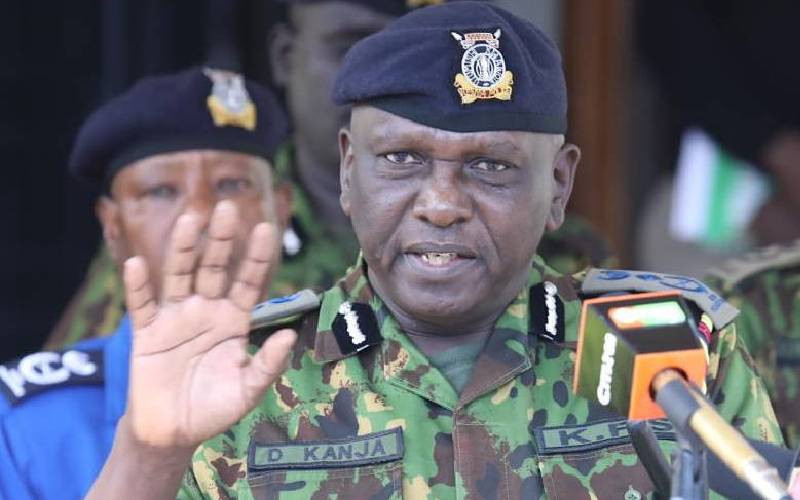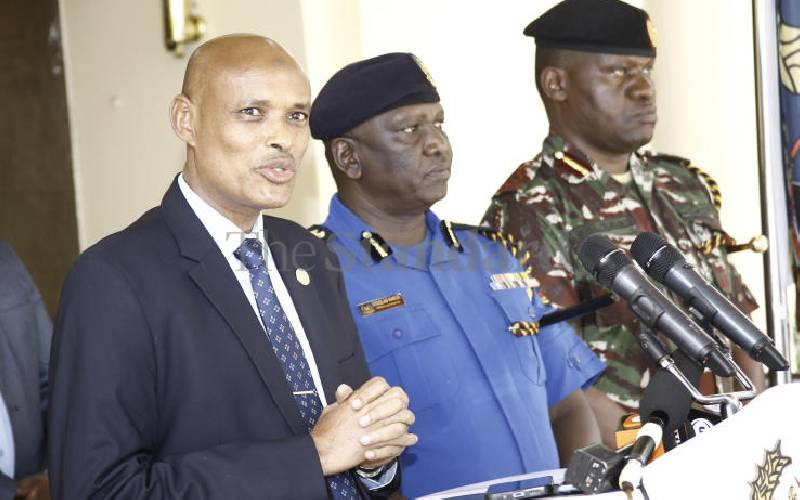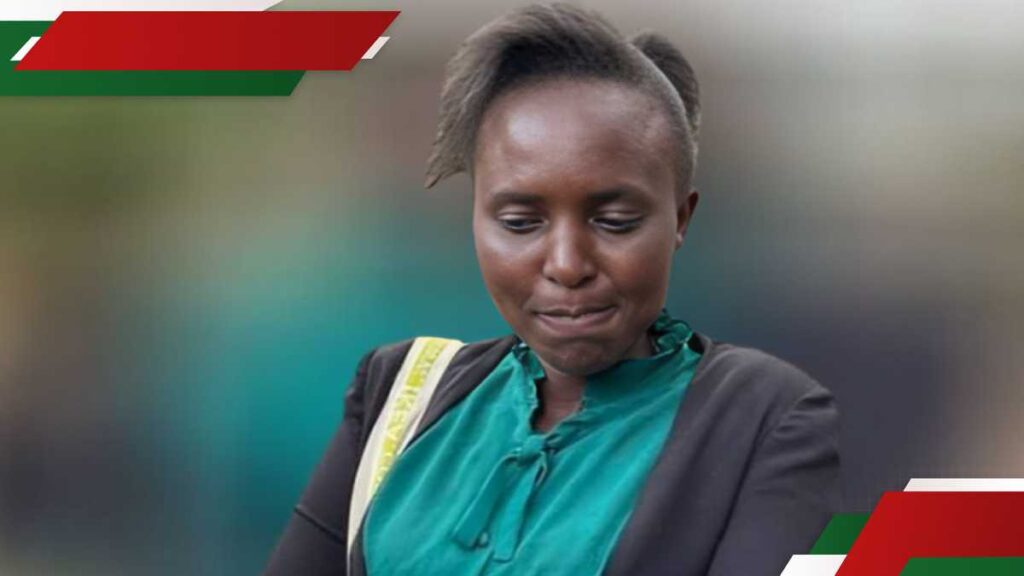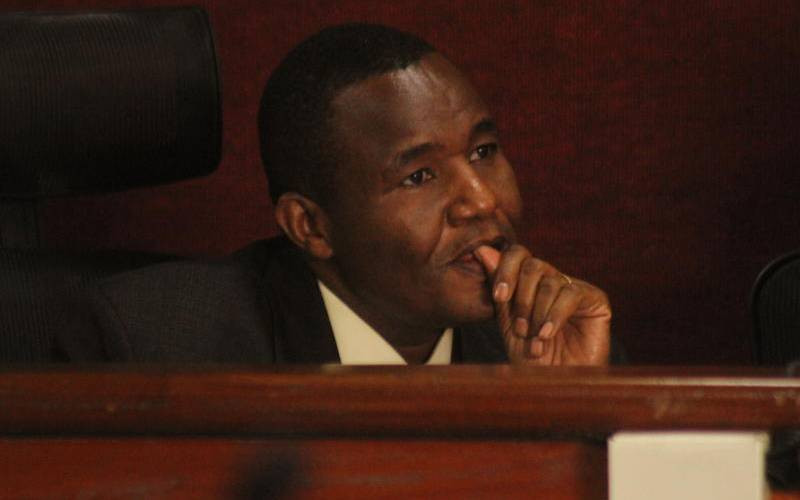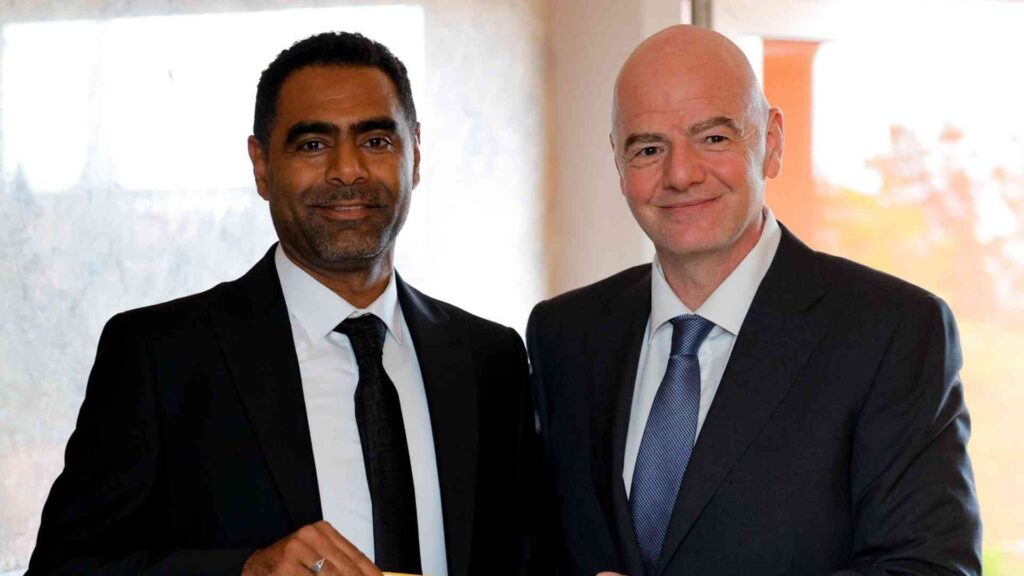In a striking display of defiance against the rule of law, Inspector General of Police Douglas Kanja and Directorate of Criminal Investigations (DCI) Director Mohamed Amin have, for the second time, failed to appear before the High Court to address the chilling cases of seven youths abducted in December 2024.
Despite intense public interest in the fate of the abductees, including those released and those still missing, the two top security officials opted to skip a critical court session, raising serious questions about the government’s commitment to accountability and justice.
Kanja and Amin’s absence underscored a recurring culture of impunity, leaving Kenyans to wonder: What message does this cavalier attitude send to a nation grappling with the trauma of abductions and enforced disappearances? How can a government demand accountability from its citizens when its own leaders so brazenly disregard court orders?
Although five of the seven abducted youths have since been freed, one of them, Steve Mbisi Kavingo, remains missing. This fact did not escape the attention of High Court Judge Justice Bahati Mwamuye, who expressed deep concern over the authorities’ failure to prioritise the matter.
“This issue is on the minds of most Kenyans today,” Justice Mwamuye remarked. He emphasised that abductions, which have gripped the country, should be a key concern for the police, particularly in safeguarding the safety and freedom of the victims.
“When I issue orders and they are not obeyed, it only leads to further contempt. It is unfair for those involved to disregard what is an urgent public issue, especially for the families of the victims,” the judge said.
Justice Mwamuye singled out Ms Stacy Mutua, the sister of the missing Steve Mbisi Kavingo, who attended court with the hope of receiving answers.
“I have thought about Ms Mutua and her family. I asked myself, what is the priority here?” the judge reflected. “Surely, their pain and the search for answers deserve more urgency.”
The judge gave Kanja and Amin a final chance to appear in court on January 27, warning that failure to comply would result in their immediate imprisonment for contempt of court.
“If the Inspector General of Police Douglas Kanja misses the third hearing, I will have no option but to cite, convict, and sentence him on the spot,” Justice Mwamuye stated firmly.
Regarding the DCI director, the judge added: “If Mohamed Amin also fails to appear, I will convict him, invite him to mitigate, and proceed to sentencing. There will be no further opportunities beyond the next hearing date.”
Kanja and Amin’s lawyer, Paul Nyamodi, argued that the officials were unable to attend the court session due to an urgent security matter requiring their attention.
Nyamodi explained that Assistant Inspector General Paul Wachira, Deputy Director of the Investigations Branch, had been sent to represent the two and present an update on the investigations.
“It is the request of my clients that Mr Wachira be allowed to brief the court on the status of investigations into the complaints related to the seven allegedly abducted individuals,” Nyamodi said.
Stay informed. Subscribe to our newsletter
He further noted that both Kanja and Amin were keen to record statements from the released individuals to conclude the investigations.
“My instructions are that none of the petitioners have presented themselves at police stations to provide statements. Investigations remain open and active,” Nyamodi claimed.
Nyamodi also confirmed that Steve Mbisi was not in police custody and that efforts to determine his whereabouts were ongoing.
“For those released, my clients believe they hold crucial information that could help resolve the matter,” Nyamodi added. He requested 14 days to complete the investigations and file a comprehensive report.
Petitioners, represented by Senior Counsel Kalonzo Musyoka, opposed the request, insisting that the court could not proceed without the presence of the police chiefs.
“Court orders are not mere pieces of paper; they must be respected,” Musyoka asserted. “The IG and DCI’s attendance is crucial for addressing this issue of national importance.”
LSK President Faith Odhiambo and Senior Counsel Martha Karua echoed the sentiment, calling for strict adherence to judicial orders.
Justice Mwamuye temporarily adjourned proceedings to allow Nyamodi to contact his clients. However, upon resumption, Nyamodi informed the court that he was unable to reach the Inspector General, who had reportedly left early in the morning for a security meeting.
“This leaves me with three options,” the judge declared. “To cite the IG for contempt, issue a warrant of arrest, and sentence him to jail.”
Kanja’s failure to appear comes months after his deputy, Gilbert Masengeli, was sentenced to six months in prison for defying court orders in a separate case involving three missing persons in Kitengela.
The culture of contempt for court orders has been a recurring theme in the country’s legal landscape. In recent years, high-profile officials, including former Interior Cabinet Secretary Fred Matiang’i and ex-Inspector General Joseph Boinett, were fined for disobeying court orders.
In 2021, former DCI boss George Kinoti was sentenced to four months in prison for refusing to return firearms to businessman Jimmy Wanjigi. While Kinoti’s sentence was suspended, the case remains emblematic of the challenges Kenya faces in enforcing judicial decisions.
The Constitution, under Article 159, guarantees judicial independence and provides mechanisms to enforce court orders, including imposing substantial fines or prison sentences on those who defy them.
As the nation watches closely, the case serves as a test of the judiciary’s resolve to uphold the rule of law and challenge the impunity that has plagued Kenya’s law enforcement agencies.








